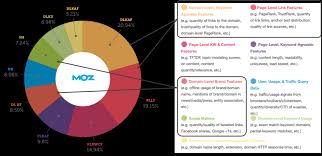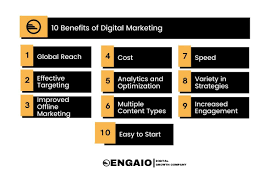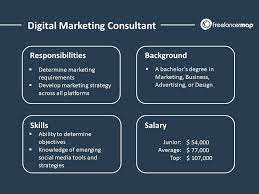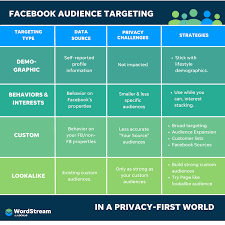Unlocking Success: Harnessing the Power of Digital PR Services for Your Brand
Digital PR Services: Amplifying Your Brand’s Online Presence
In today’s digital age, having a strong online presence is crucial for businesses to thrive and succeed. Digital PR services have emerged as a powerful tool to help brands navigate the ever-changing online landscape and effectively communicate their message to a wider audience. Let’s explore how digital PR services can amplify your brand’s online presence and drive meaningful results.
Digital PR encompasses various strategies and tactics that leverage digital platforms to enhance a brand’s reputation, visibility, and engagement with its target audience. It goes beyond traditional public relations by harnessing the power of the internet, social media, influencers, and online communities.
One of the key benefits of digital PR services is their ability to generate widespread awareness for your brand. Through strategic media outreach, content creation, and distribution, digital PR professionals can secure valuable online coverage in reputable publications, industry blogs, and influential websites. This not only increases brand visibility but also helps establish credibility and authority within your industry.
Another significant advantage of digital PR is its potential to drive targeted traffic to your website. By leveraging search engine optimization (SEO) techniques, digital PR experts optimize your online content to rank higher in search engine results pages (SERPs). This means that when potential customers search for relevant keywords related to your business or industry, they are more likely to find your website. This increased visibility can lead to higher website traffic and ultimately more conversions.
Digital PR services also excel at building relationships with key influencers in your industry. These influencers have a loyal following on social media platforms or through their own blogs or vlogs. By partnering with them through collaborations or sponsored content, you can tap into their engaged audience and gain exposure among potential customers who trust their recommendations. This influencer-driven approach allows you to reach a highly targeted audience that is more likely to be interested in your products or services.
Furthermore, digital PR services play a vital role in managing a brand’s online reputation. In today’s interconnected world, news and information spread rapidly, and negative publicity can have a lasting impact on a business. Digital PR professionals monitor online conversations and take proactive measures to address any negative sentiment or misinformation swiftly. By effectively managing your brand’s reputation online, digital PR services help safeguard your image and maintain customer trust.
In addition to these core benefits, digital PR services offer a range of other valuable strategies such as social media management, content marketing, crisis communication, and online community engagement. These services work in synergy to create a comprehensive digital PR strategy that aligns with your brand’s goals and objectives.
In conclusion, digital PR services are essential for businesses looking to amplify their brand’s online presence. By leveraging the power of digital platforms, these services can generate widespread awareness for your brand, drive targeted traffic to your website, build relationships with influencers, and manage your online reputation effectively. With the expertise of digital PR professionals by your side, you can navigate the complex world of digital communication and make a lasting impact in the digital realm.
If you’re ready to take your brand’s online presence to new heights, consider investing in professional digital PR services. The benefits are undeniable – increased visibility, enhanced reputation, and ultimately greater success in the competitive online landscape. Embrace the power of digital PR today and unlock the full potential of your brand in the digital age.
5 Essential Tips for Effective Digital PR Services in the UK
- Research the market – Find out what digital PR services are available and which ones are best suited to your business needs.
- Set objectives – Decide what you want to achieve with digital PR services and set measurable goals for success.
- Develop a strategy – Create a plan of action for how you will use digital PR services to reach your objectives.
- Monitor results – Track the progress of your campaigns and adjust as needed to ensure maximum return on investment (ROI).
- Stay up-to-date – Keep abreast of new trends in digital PR services so that you can stay ahead of the competition and make sure your campaigns remain effective over time.
Research the market – Find out what digital PR services are available and which ones are best suited to your business needs.
Research the Market: Finding the Perfect Digital PR Services for Your Business
When it comes to enhancing your brand’s online presence, digital PR services can be a game-changer. However, not all digital PR services are created equal, and finding the right fit for your business is crucial. That’s why it’s essential to research the market and discover which digital PR services are available and best suited to your specific needs.
The first step in this process is to gain a clear understanding of your business goals and objectives. Are you looking to increase brand awareness, drive website traffic, or manage your online reputation? Identifying your priorities will help you determine which digital PR services align with these goals.
Once you have a clear vision of what you want to achieve, it’s time to dive into the market. Start by exploring reputable digital PR agencies or professionals who specialize in providing comprehensive digital PR solutions. Look for agencies that have a proven track record of success and positive client testimonials.
Next, consider the range of services offered by each agency. Digital PR encompasses various strategies such as media relations, content creation and distribution, influencer partnerships, social media management, SEO optimization, and more. Assess which services are most relevant to your business needs and ensure that the agency you choose can provide them effectively.
In addition to services offered, consider the agency’s expertise in your industry or niche. Each industry has its unique dynamics and target audience. Working with an agency that understands these nuances can make a significant difference in the success of your digital PR campaigns. Look for case studies or examples of their work within your industry to gauge their experience.
Furthermore, take into account factors such as budget constraints and timeline expectations. Discuss these aspects with potential agencies during initial consultations to ensure they can accommodate your requirements without compromising on quality.
Remember that research is key when selecting the right digital PR services for your business. Take time to read reviews, compare pricing structures, and ask for recommendations from trusted sources. Additionally, consider reaching out to the agencies directly to discuss your needs and gauge their responsiveness and willingness to understand your business.
By conducting thorough market research, you can find digital PR services that perfectly align with your business needs. This proactive approach ensures that you invest in a partnership that will yield the best results for your brand’s online presence.
So, take the time to research the market and discover which digital PR services are available and best suited to your specific needs. With the right agency by your side, you can unlock the full potential of digital PR and propel your brand towards success in the ever-evolving online landscape.
Set objectives – Decide what you want to achieve with digital PR services and set measurable goals for success.
Setting Objectives: The Key to Success in Digital PR Services
When it comes to leveraging digital PR services, setting clear objectives is essential. By defining what you want to achieve and establishing measurable goals, you lay the foundation for a successful digital PR campaign. Let’s explore why setting objectives is crucial and how it can drive your brand towards online success.
Digital PR services offer a plethora of opportunities to enhance your brand’s online presence, but without well-defined objectives, it becomes challenging to measure success or track progress. Setting objectives helps you focus your efforts, allocate resources effectively, and ensure that your digital PR strategy aligns with your overall business goals.
To begin, take the time to reflect on what you hope to achieve through digital PR services. Are you looking to increase brand awareness? Drive website traffic? Generate leads or conversions? Build credibility in your industry? Each objective requires a different approach and set of tactics. By clearly defining your goals, you can tailor your digital PR campaign accordingly.
Once you have established your objectives, ensure they are measurable. This means setting specific metrics that will allow you to track progress and evaluate the success of your digital PR efforts. For example, if your goal is to increase website traffic, consider setting a target number of monthly visitors or tracking the percentage increase in organic search traffic over time.
Measurable goals not only provide a benchmark for success but also enable you to make data-driven decisions throughout your digital PR campaign. By regularly monitoring key performance indicators (KPIs), such as website analytics or social media engagement metrics, you can identify areas that need improvement or adjust strategies as needed.
Setting objectives also helps in determining the ROI (return on investment) of your digital PR services. By establishing clear goals upfront, you can evaluate whether the outcomes justify the resources invested. This evaluation allows for continuous improvement and optimization of future campaigns based on what works best for your brand.
Furthermore, setting objectives creates accountability and ensures that all stakeholders involved in your digital PR campaign are aligned. By sharing these objectives with your digital PR agency or internal team, everyone understands the desired outcomes and can work towards achieving them collectively.
Remember that objectives should be realistic and attainable. While it’s important to aim high, setting unattainable goals may lead to frustration or disappointment. Break down larger goals into smaller, achievable milestones, allowing you to celebrate progress along the way and maintain motivation.
In conclusion, setting objectives is a vital step when embarking on a digital PR campaign. It provides direction, clarity, and focus while enabling you to measure success and make data-driven decisions. By defining your goals and establishing measurable metrics, you can ensure that your digital PR services effectively contribute to your brand’s online success.
So, take the time to set clear objectives for your digital PR campaign today. Whether it’s increasing brand awareness, driving website traffic, or building credibility – by setting measurable goals, you pave the way for a successful journey in the dynamic world of digital PR services.
Develop a strategy – Create a plan of action for how you will use digital PR services to reach your objectives.
Develop a Strategy: The Key to Unlocking the Power of Digital PR Services
In the fast-paced world of digital PR, having a well-defined strategy is essential to make the most of the services available and achieve your objectives. By developing a solid plan of action, you can harness the true potential of digital PR services and propel your brand towards success. Let’s explore why creating a strategy is crucial and how it can help you reach your goals.
Firstly, developing a strategy allows you to clearly define your objectives. What do you want to achieve through digital PR? Whether it’s increasing brand awareness, driving website traffic, generating leads, or enhancing your online reputation, establishing specific goals will provide clarity and direction for your digital PR efforts.
Once you have identified your objectives, you can then determine the most effective tactics and channels to reach them. This could include media outreach, influencer collaborations, content marketing, social media management, or a combination of these strategies. By aligning your tactics with your goals, you ensure that every action taken contributes directly towards achieving desired outcomes.
Furthermore, creating a strategy enables you to identify and understand your target audience. Who are they? Where do they spend their time online? What are their interests and pain points? By conducting thorough research and analysis, you can gain valuable insights into your audience’s preferences and behaviour. This knowledge will guide your decision-making process when selecting appropriate digital platforms and crafting compelling messages that resonate with your target audience.
A well-developed strategy also helps in allocating resources effectively. Digital PR services encompass various activities that require time, effort, and sometimes financial investment. By having a clear plan in place, you can allocate resources efficiently based on priority areas that align with your objectives. This ensures that you make the most of the available resources without wasting valuable time or budget on ineffective tactics.
Moreover, developing a strategy allows for measurement and evaluation of results. By setting key performance indicators (KPIs) and tracking relevant metrics, you can assess the impact and effectiveness of your digital PR efforts. This data-driven approach enables you to identify what is working well and make necessary adjustments to optimize your strategy for better results in the future.
Lastly, a well-defined strategy provides a roadmap for consistent and cohesive messaging. In the digital realm, consistency is key to building brand recognition and trust. By outlining your key messages, tone of voice, and overall brand identity within your strategy, you ensure that all digital PR activities align with your brand’s values and objectives. This consistency helps establish a strong brand presence online and fosters a positive perception among your target audience.
In conclusion, developing a strategy is essential when utilizing digital PR services to reach your objectives. It provides clarity, direction, and focus for your efforts while optimizing resource allocation. A well-crafted strategy allows you to understand your target audience, select the most effective tactics, measure results, and maintain consistent messaging across all digital channels. By investing time in developing a comprehensive plan of action, you can unlock the true potential of digital PR services and propel your brand towards success in the dynamic online landscape.
Monitor results – Track the progress of your campaigns and adjust as needed to ensure maximum return on investment (ROI).
Monitoring Results: Maximizing ROI in Digital PR Services
When it comes to digital PR services, one crucial tip for success is to monitor the results of your campaigns and make adjustments as needed. Tracking the progress of your efforts allows you to ensure that you’re getting the maximum return on investment (ROI) from your digital PR strategies. Let’s explore why monitoring results is essential and how it can help you achieve your goals.
In the fast-paced world of digital PR, it’s vital to have a clear understanding of how your campaigns are performing. By monitoring key metrics and tracking relevant data, you can gain valuable insights into the effectiveness of your strategies. This information enables you to identify what’s working well and what needs improvement, allowing you to make data-driven decisions.
Tracking results allows you to measure the impact of your digital PR efforts accurately. You can evaluate various metrics such as website traffic, engagement rates on social media platforms, media coverage, lead generation, or conversions. By analysing these metrics over time, you can assess the success of specific campaigns or tactics and identify areas where adjustments are necessary.
Regularly monitoring results also helps in identifying trends and patterns. It allows you to spot any fluctuations or anomalies in performance that may require further investigation or adjustment. For example, if a particular campaign is not delivering the expected results or if there is a sudden drop in website traffic, tracking results helps identify these issues promptly so that corrective actions can be taken.
Moreover, monitoring results provides insights into audience behaviour and preferences. By analysing data related to audience demographics, engagement patterns, or content consumption habits, you can gain a deeper understanding of what resonates with your target audience. This knowledge allows you to tailor future campaigns more effectively and deliver content that will engage and resonate with your audience.
Adjusting your strategies based on monitored results is crucial for optimizing ROI in digital PR services. If certain tactics are not yielding desired outcomes, it’s essential to be flexible and make necessary adjustments. This could involve refining your messaging, targeting a different audience segment, or exploring new platforms or channels. By adapting your strategies based on the insights gained from monitoring results, you can optimize your campaigns and achieve better results.
In addition to improving the effectiveness of your current campaigns, monitoring results also helps in long-term planning. By tracking the success of different strategies over time, you can identify trends and patterns that inform future decision-making. This data-driven approach ensures that your digital PR efforts evolve and remain aligned with changing market dynamics and audience preferences.
In conclusion, monitoring results is a key tip for maximizing ROI in digital PR services. By tracking the progress of your campaigns and making adjustments as needed, you can ensure that your efforts are delivering optimal results. Monitoring allows you to measure the impact of your strategies accurately, identify trends and patterns, understand audience behaviour, and make data-driven decisions for future campaigns. Embrace this tip as an integral part of your digital PR approach to achieve maximum ROI and drive meaningful outcomes for your brand.
Stay up-to-date – Keep abreast of new trends in digital PR services so that you can stay ahead of the competition and make sure your campaigns remain effective over time.
Stay up-to-date – The Key to Effective Digital PR Services
In the ever-evolving world of digital PR services, staying ahead of the competition and maintaining the effectiveness of your campaigns is crucial. One vital tip to achieve this is to stay up-to-date with new trends and developments in the field. Let’s explore why staying informed is essential and how it can benefit your digital PR efforts.
Digital PR services are constantly evolving as new technologies, platforms, and strategies emerge. What worked yesterday may not be as effective today. By staying up-to-date with the latest trends, you can ensure that your campaigns remain relevant, impactful, and aligned with current best practices.
One of the primary advantages of staying informed about new trends in digital PR services is that it allows you to leverage emerging technologies and platforms. For example, social media platforms are continually introducing new features and algorithms that can significantly impact your digital PR strategy. By staying updated on these changes, you can adapt your approach accordingly to maximize engagement and reach.
Furthermore, being aware of new trends helps you identify innovative strategies that can give you a competitive edge. Digital PR is a dynamic field where creative ideas and unique approaches can make a significant impact on brand visibility and audience engagement. By keeping abreast of industry trends, you open yourself up to fresh perspectives and opportunities for growth.
Staying informed also enables you to anticipate shifts in consumer behavior or industry dynamics. Understanding how your target audience engages with digital content or how industry influencers evolve their preferences allows you to adjust your strategies proactively. This foresight ensures that your campaigns remain effective over time by aligning with changing customer expectations.
Additionally, being knowledgeable about new trends in digital PR services positions you as an industry leader or expert within your niche. When clients or stakeholders see that you are well-informed about the latest developments, they will have more confidence in your ability to deliver successful campaigns. This credibility can lead to increased trust, more significant partnerships, and a positive reputation for your brand.
So, how can you stay up-to-date with new trends in digital PR services? Here are a few tips:
- Follow industry publications and blogs: Subscribe to reputable publications, websites, and blogs that cover digital PR topics. They often share insights, case studies, and updates on emerging trends.
- Attend industry events and webinars: Participate in conferences, seminars, or webinars focused on digital PR. These events provide opportunities to learn from industry experts and network with like-minded professionals.
- Engage with online communities: Join relevant online communities or forums where professionals discuss digital PR strategies and trends. Actively participate in discussions to gain insights from others in the field.
- Network with peers: Connect with other professionals in the digital PR industry through networking events or social media platforms like LinkedIn. Engaging in conversations with peers can help you exchange knowledge and stay informed about new developments.
By staying up-to-date with new trends in digital PR services, you position yourself at the forefront of the industry. This knowledge allows you to adapt your strategies effectively, remain competitive, and ensure that your campaigns continue to deliver impactful results over time.
Remember, the world of digital PR is constantly evolving – embrace the opportunity to learn and grow alongside it. Stay informed, stay ahead!












